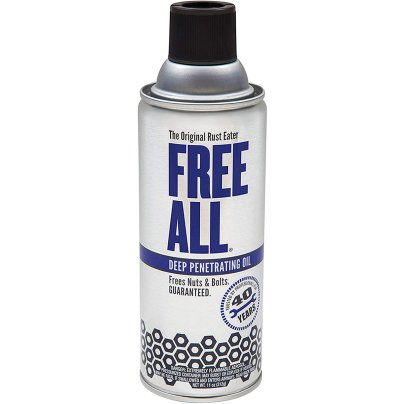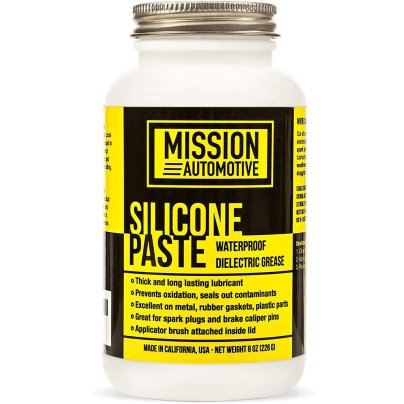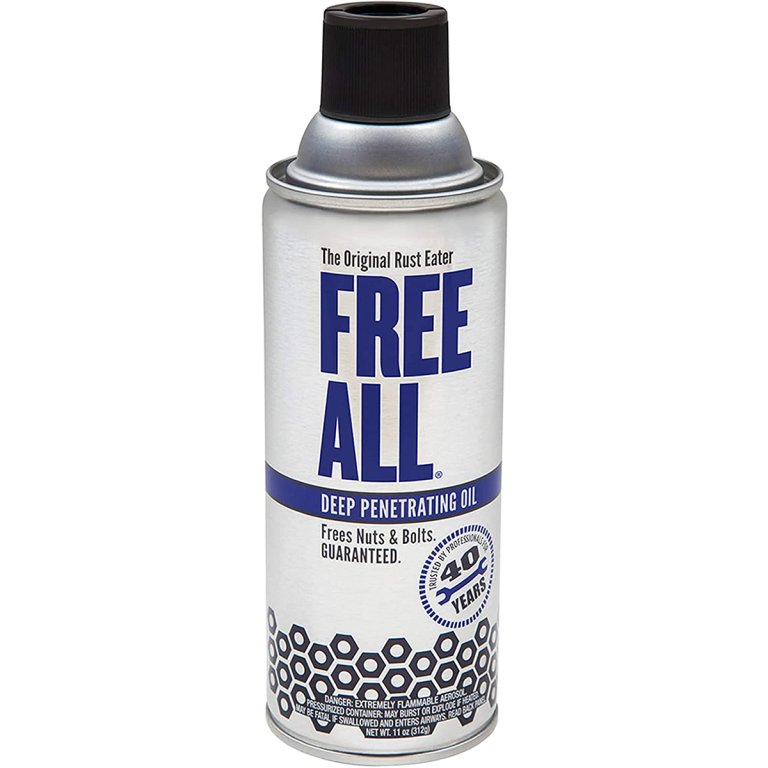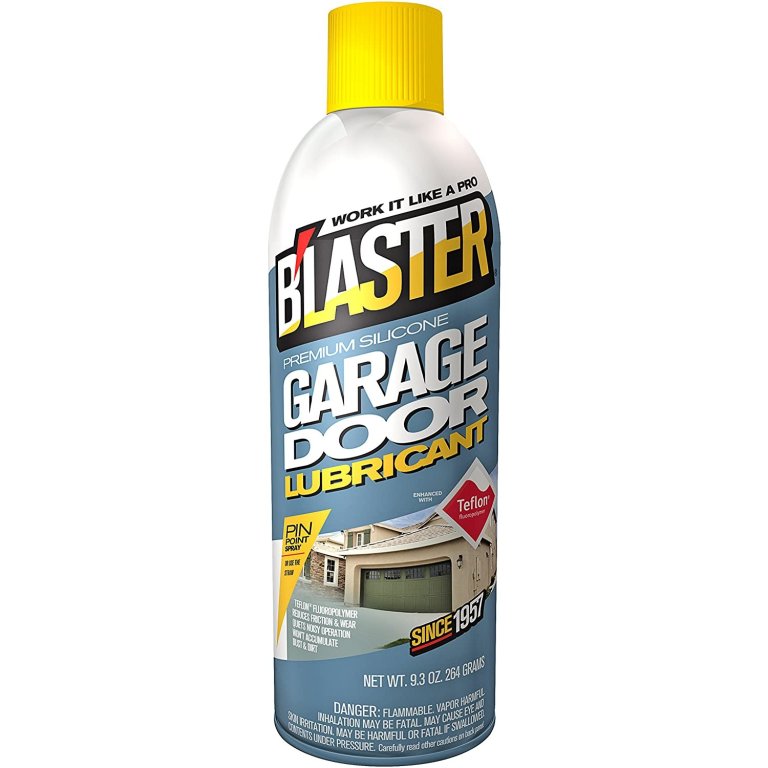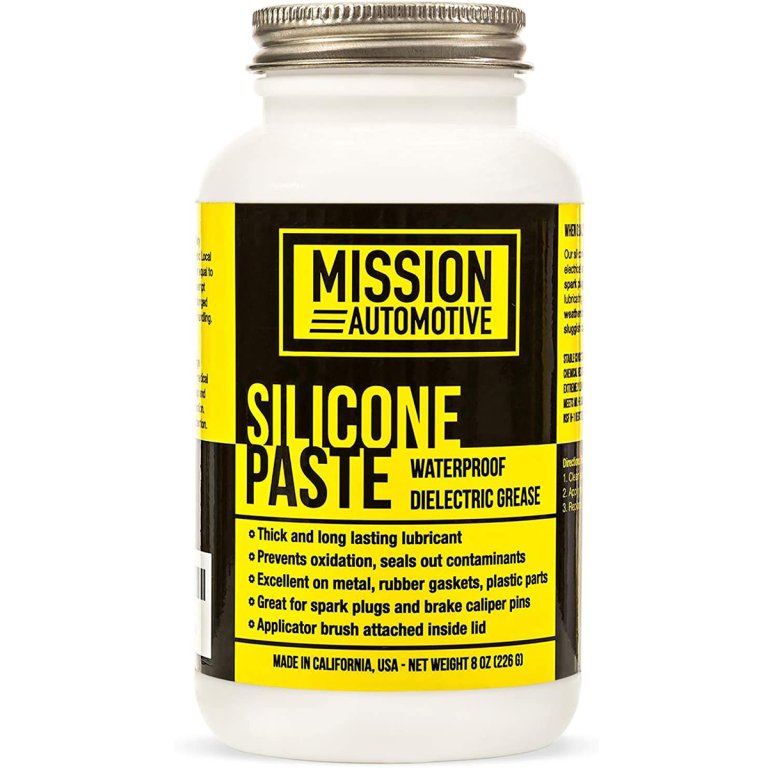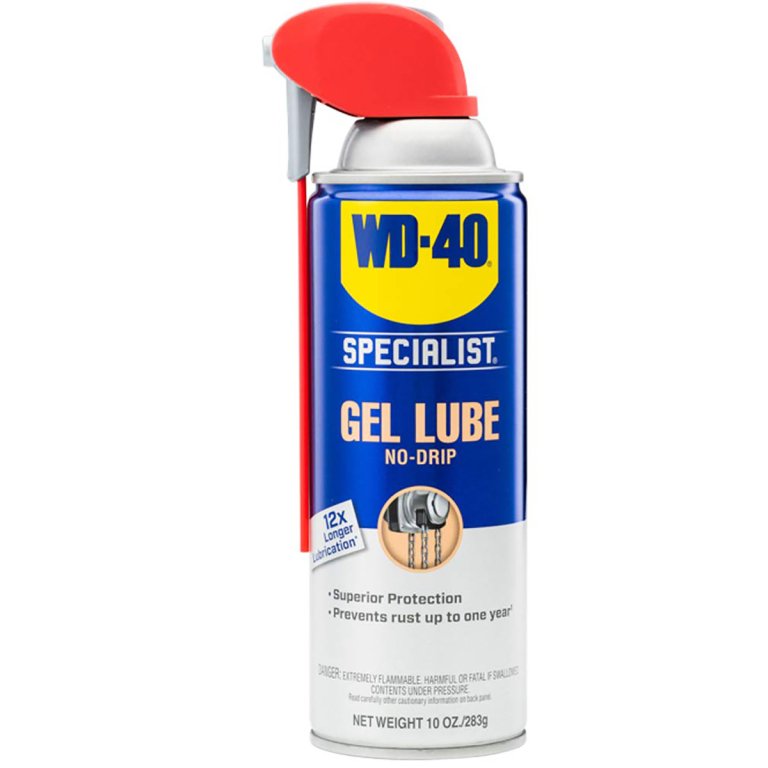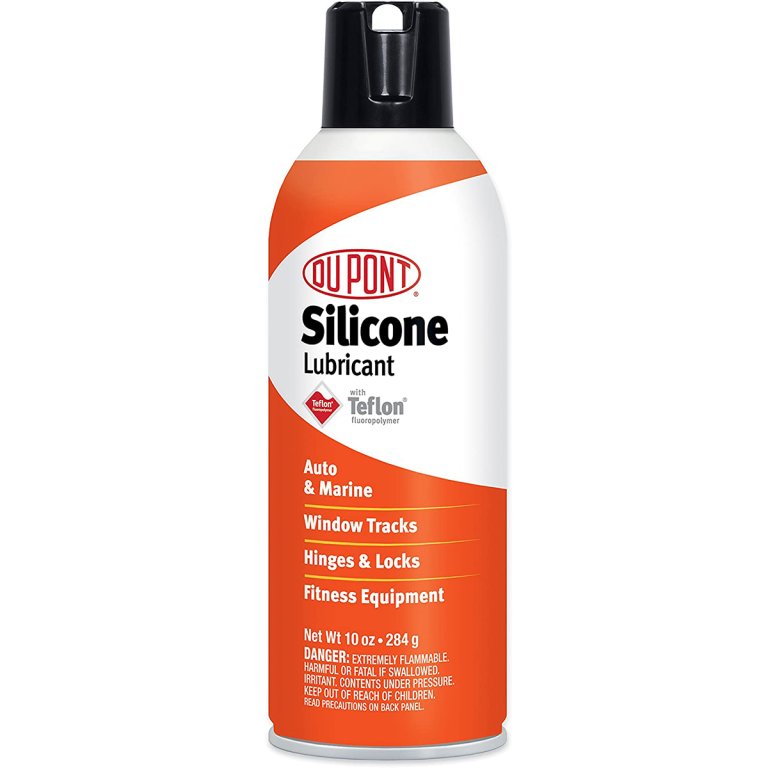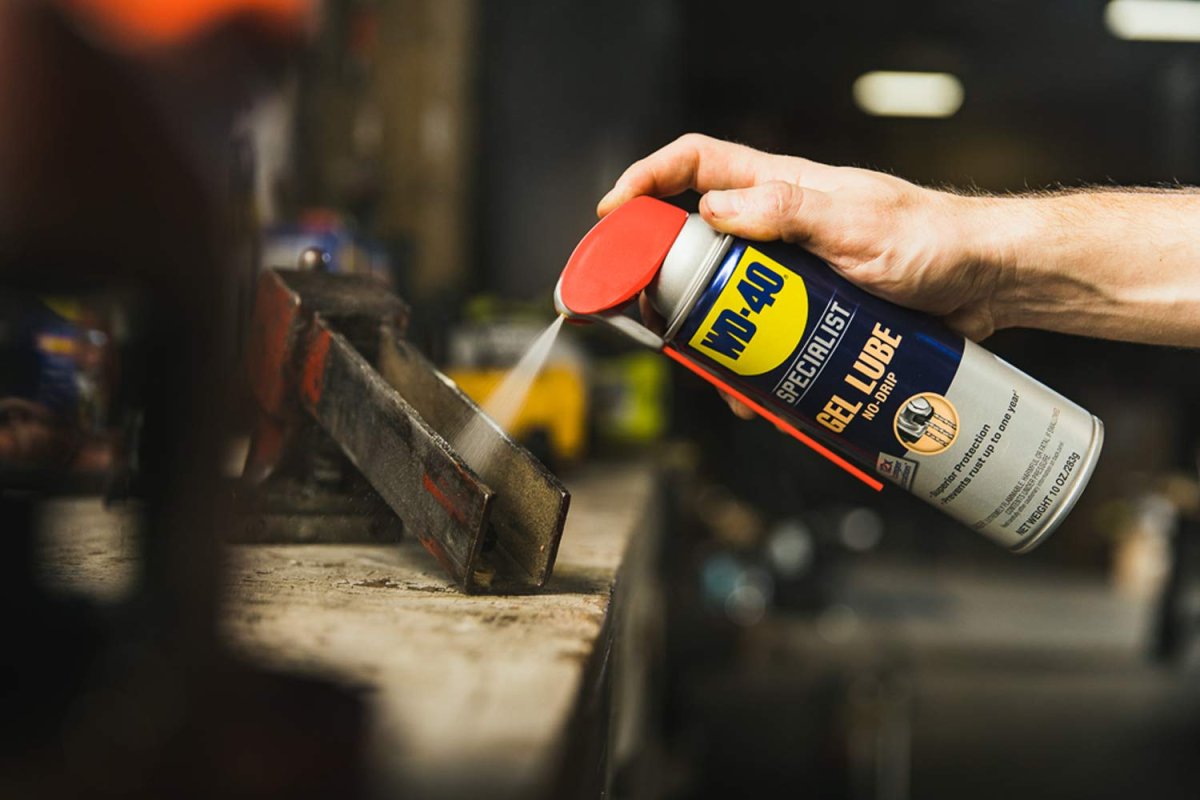
We may earn revenue from the products available on this page and participate in affiliate programs. Learn More ›
If your garage door is starting to rumble and chatter, there’s a good chance it needs some attention. Over time, moisture and natural oxidation can cause rust and wear. The effects can make a garage door opening sound more like gravel in a coffee can than a well-oiled machine. If you’ve ever heard the sound a garage door spring makes when it finally breaks, you know that’s a whole other level of startling.
The best garage door lubricant can help prevent operating issues and make your garage door and its components last as long as possible. These products help ward off the effects of moisture, reduce oxidation, and protect metal parts like the hinges, rails, and rollers from friction. Read on for some of the best garage door lubes available.
- BEST OVERALL: Gasoila Free All Rust Eater Deep Penetrating Oil
- BEST BUDGET: Blaster Chemical Company 9.3 Oz Garage Dr Lube
- BEST LUBRICATING GREASE: Mission Automotive Silicone Paste
- BEST FOR COLD WEATHER: WD-40 Specialist Gel Lube
- HONORABLE MENTION: DuPont Teflon Silicone Lubricant Aerosol Spray
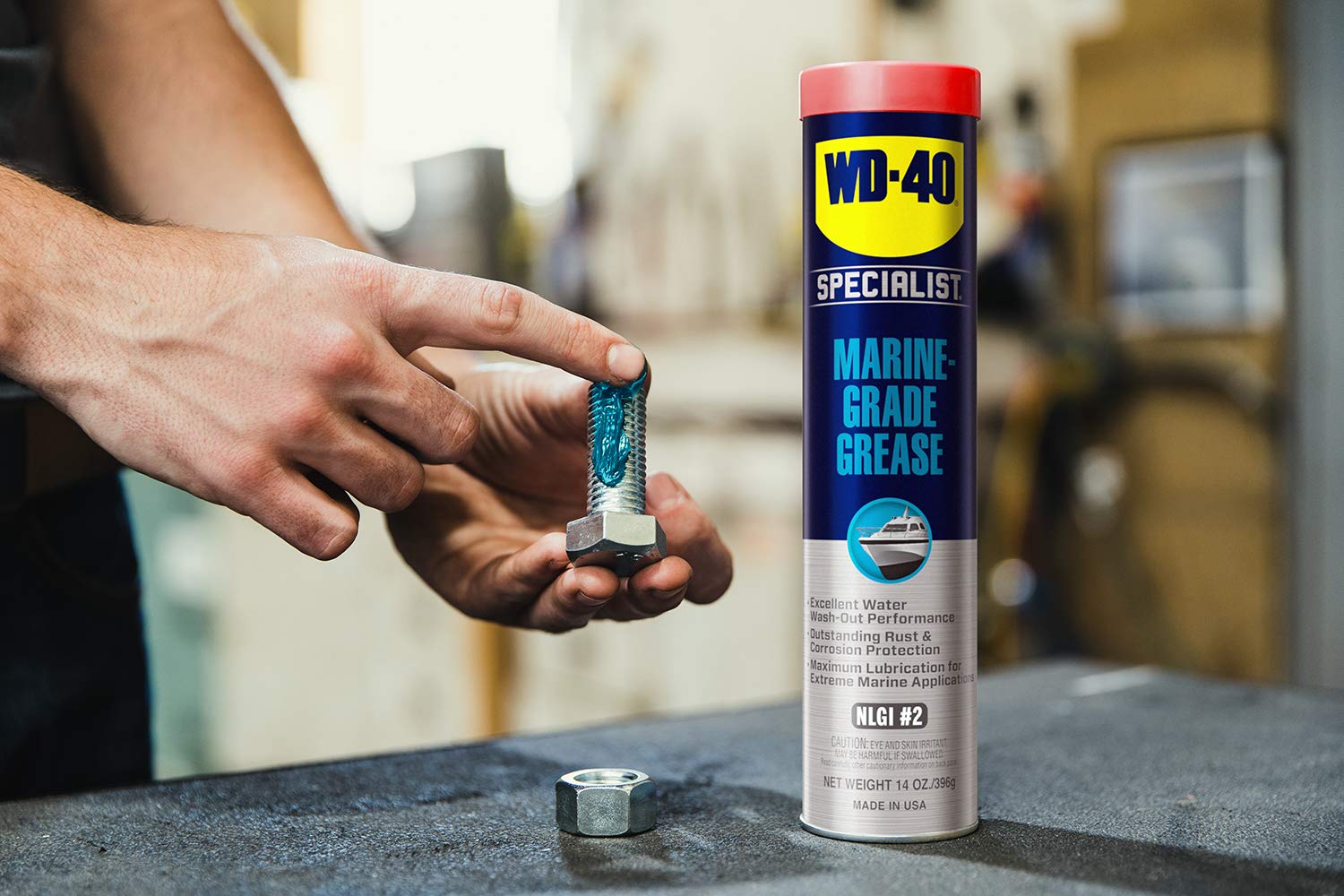
What to Consider When Choosing the Best Garage Door Lubricant
Before you start spraying your garage door lubricant you have under your kitchen sink, there are a few things you should know. Some lubricants perform poorly in high or low temperatures, and most can make a drippy, sloppy mess. It’s best to do a little research to ensure you choose the best garage door lubricant for your situation.
Below are some of the most important things to consider when shopping for a garage door lubricant. Keep them in mind while shopping to make sure the process goes as smoothly as possible.
Lubricating Base
While there are quite a few products billed as lubricants, two types are the most effective for garage door applications: silicone and lithium. They both work very well, but one might be better for a particular application than the other, and the winning recipe may be a combination of both types applied on different components.
Keep in mind that while most garage door parts are metal, there are other materials used in the garage door operating components. Many rollers are plastic or nylon, and seals are usually rubber-based. Both of the main types of lubricant bases mentioned below are safe for any of these materials.
- Silicone-based lubricants are long-lasting and provide moisture-resistance. These lubricants also do a good job of working their way into tight hinges, coiled springs, and other hard-to-penetrate areas. They’re extremely weather-resistant, so they can be the best choice for areas with cold winters and hot summers.
- Lithium-based lubricants do a great job of reducing friction and metal-on-metal contact. These lubricants are more likely to stay on the surface rather than soaking into a part. This makes them incredibly good for lubricating rails, rollers, and other friction points. Lithium also does a good job of resisting weather, but it doesn’t provide much waterproofing.
There also are oil-based lubricants, but unless it’s a specific garage door formula, they aren’t always the most reliable option. They can dissipate too quickly or become less effective in extreme temperatures. They also tend to drip or “sling” from rotating parts.
Form
Like all lubricants, garage door lubricants come in a variety of forms. The two most common types to consider for your garage door are grease and spray.
- Grease can be messy. It usually comes in cans or tubes, and it requires you to smear it onto the surface. But, it’s long-lasting and creates a film that all but eliminates friction. It can heat up and wear away over time, but it also can be the ideal choice for garage door rails and tracks. Keep in mind that grease comes in many forms, but lithium- or silicone-based greases do the best job of resisting harsh weather.
- Sprays are far easier to apply than grease. They’re usually silicone-based, but it’s not hard to find lithium-based sprays. They also do a better job of soaking into tiny nooks and crevices, providing protection in areas that grease can’t reach. They do wear off or dry out a bit sooner and require more frequent reapplication, which is every few months or so. However, they’re much easier to reapply than grease. While they might not last as long on a rail or track, the ability to respray so quickly is appealing.
Intended Use
Before you decide which product to purchase, you should consider how you plan to use it. Some products are better at certain aspects of garage door lubrication than others. Ideal lubrication could actually include two products.
If you’re planning on treating your wheels and hinges, a spray-based lubricant may be your best option. You’ll be able to aim the product right where it needs to go, allowing it to soak in with ease.
If you’re looking to protect your rails and tracks, you might consider a grease-based product. While it’s messy, grease lasts a long time and might make the best choice in these applications. Keeping a rag on hand to wipe rogue grease and to use as a background for spraying will help reduce potential mess.
Longevity
Longevity can be a tricky proposition. While a lubricant needs to last as long as possible, many manufacturers recommend using their products on a monthly basis. While monthly treatment will certainly help your garage door last as long as possible, it might not be feasible or even necessary.
The trick is to get into a routine in which you’re greasing or oiling your garage door before it needs it but not so often that your door is dripping with lube. This interval will depend on many factors, including your door’s condition, the temperature and weather fluctuations where you live, and how often you use your garage door. Some lubricants have the potential to last for up to a year, though that will depend on your specific garage door and climate.
If your garage door isn’t working properly, it is important to address what is causing the issue before determining your lubrication interval.
Application
How you apply your lubricant has a lot to do with choosing the right product. Spray lubricants are obviously the easiest to apply in most situations. They come with long, reusable straws that help pinpoint the spray into a tight spot, but you also can remove the straw for covering tracks and rails quickly.
Greases can be a pain, but their ability to protect and lubricate might make them worth the effort. Applying them can require a brush, a gloved finger, or a toothpaste-like squeeze tube. It’s hard to get these pastes and greases into tight nooks, but you can make an effort with a fine-tipped paintbrush or toothbrush. Just be sure to dedicate these tools to grease-only uses, as they’d be rather unsuitable for their intended uses after greasing your garage door.
Our Top Picks
Now that you know what features to consider when choosing the best garage door lubricant, you’re ready to start shopping. Below is a list of some of the best garage door lubricants. Be sure to keep all of those important considerations in mind so that you’ll be able to maintain and/or fix your garage door with ease.
Best Overall
Gasoila Free All Rust Eater Deep Penetrating Oil
Pros
- Silicone- and lithium-free formula
- Reduces rust
- Removable straw included
- Works on tracks, rails, and other metal parts
Cons
- Not recommended for use on bicycle chains
Product Specs
- Base: Oil
- Form: Spray
- Size: 11 ounces
If your garage door has seen better days, you might need to take care of some of its other issues before lubricating it. Gasoila’s penetrating oil takes this two-step process and streamlines it into one. This penetrating oil not only lubricates but also removes rust and deposits, loosening stuck parts with ease.
Free All uses an oil-based formula consisting of 35 percent rust-seeking chemicals, 30 percent rust-eating chemicals, and 35 percent lubricant. The result is a silicone- and lithium-free lubricant that refreshes and protects your garage door components. It comes with a removable straw for concentrating its spray, but it also works well for tracks and rails with its standard spray nozzle.
Get the Gasoila penetrating oil on Amazon.
Best Budget
Blaster Chemical Company 9.3 Oz Garage Dr Lube
Pros
- Easy to use
- Creates quiet operation
- Detachable straw included
- Affordable
Cons
- Tends to drip
- May not be as effective without the straw
Product Specs
- Base: Silicone
- Form: Spray
- Size: 9.3 ounces
Simple to use and non-messy, the Blaster Garage Dr Lube is a high-quality silicone lubricant with a Teflon formula for a greasy texture that requires no rubbing into small metal parts in the garage door. Specially formulated to create quiet operation, this lube gets into gears and hinges easily with its thick coating and comes with a detachable straw for spraying.
Simply hold down the button for a drip-free, controlled, and steady stream of spray in easy- and hard-to-reach locations. Plus, you can use it in the colder months without having to worry about it freezing and it repels dust and debris that may accumulate in your garage.
Get the Blaster lube at Amazon, Walmart, and Lowe’s.
Best Lubricating Grease
Mission Automotive Dielectric Grease/Silicone Paste
Pros
- Brush built into the lid
- Suitable for use on spark plugs, O-rings, tracks, and rails
- Waterproof
Cons
- Pricey compared to similar options
- Harder to apply than spray alternatives
Product Specs
- Base: Silicone
- Form: Grease
- Size: 8 ounces
When it comes to creating a long-lasting friction-eliminating solution, it can be hard to beat a high-quality grease. Mission Automotive Dielectric Grease/Silicone Paste can provide that type of protection while doing its best to remove the headaches of application. This bottle has a brush built into the lid, allowing you to apply this grease precisely where it needs to be.
You can use the waterproof Mission Automotive Dielectric Grease/Silicone Paste for a number of mechanical applications like spark plugs and O-rings, but it does a particularly good job of greasing rails and tracks, making it an ideal companion to a deep penetrating spray for your garage door maintenance needs.
Get the Mission Automotive paste on Amazon and at Walmart.
Best For Cold Weather
WD-40 Specialist Gel Lube
Pros
- Suitable for use on hinges, chains, and rails
- Withstands extreme temperatures
- Lasts for over a year
- Anti-fling property
Cons
- Some users report defective nozzles
Product Specs
- Base: Oil
- Form: Spray
- Size: 10 ounces
If you’re looking to lubricate and protect your garage door hinges, chains, and rails in some extreme temperatures, the WD-40 Specialist Gel Lube might be the product for you. This spray has a petroleum oil-based lubricant that sprays in a gel form, clings to vertical surfaces, and stays put for up to a year. The formula features an anti-fling property that keeps it from slinging its slippery gel from moving parts like gears and chains.
One of the best parts about WD-40 Specialist Gel Lube is its resistance to cold weather. Instead of gumming up in lower temperatures, this product continues to lubricate down to -100 degrees Fahrenheit. It also protects for up to 12 months per application.
Get the WD-40 gel lube at Amazon, The Home Depot, and Walmart.
Honorable Mention
DuPont Teflon Silicone Lubricant
Pros
- Suitable for multiple surfaces and materials
- Easy to use
- Water-resistant; Teflon fluoropolymer helps displace water
Cons
- Some users report trouble spraying
- May not be suitable for use on tires or tire wells
Product Specs
- Base: Silicone
- Form: Spray
- Size: 10 ounces
DuPont’s Teflon Silicone Lubricant is certainly worth a look if you need a product that can lubricate and protect several materials with one can. This formula works with metal, rubber, vinyl, leather, and wood, providing a water-resistant and repellent property. It works just as well for garage doors as it does on fitness equipment, bikes, and sewing machines.
The DuPont Teflon Silicone Lubricant comes in an aerosol that makes spraying tracks and rails an easy process. It’s ideal for damp or wet garages and barns, as the silicone Teflon fluoropolymer helps displace water and keeps it from corroding or damaging your garage door’s components and hardware.
Get the DuPont lubricant on Amazon and at Walmart.
Our Verdict
For a reliable, long-lasting garage door lube, the Gasoila spray is a penetrating oil-based lubricant that reduces rust and works on tracks, rails, and other metal parts. Alternatively, for a budget-friendly option, the Blaster Garage Dr Lube spray can keep your garage door quiet and operational with a silicone base and detachable straw applicator.
How We Chose the Best Garage Door Lubricants
We researched the most sought-after garage door lubricants in their respective categories and discovered that the best options are determined by their ingredients, form, quantity, compatibility with multiple surfaces, and other special features included by the top brands.
While searching for the best garage door lubes available, the spray options were among the most popular for their ease of use and effectiveness. Though not as popular, the grease and paste formulas are water-resistant and heavy-duty. To provide ample options and satisfy a range of preferences, the above list includes silicone and oil-based formulas that work on a variety of materials and surfaces.
The majority of our top picks also come with 8- to 11-ounce quantities, enough for multiple applications to garage door rails, tracks, gears, springs, bearing plates, and chains. Select picks are also suitable for use on O-rings, spark plugs, bicycles, and cars. Some products also come with detachable straws or brushes for easy application.
Tips for Using Your Garage Door Lubricant
You may think that applying garage door lube is easy. But, there are a few things to be aware of before you start spraying, rubbing, or brushing lube on a garage door’s moving parts. Firstly, always lubricate the garage door’s moving parts with the garage door completely closed to ensure you have clear access to all of the metal components. To be on the safe side, you should also disconnect the power to the garage door to avoid unwanted opening or moving parts.
Before applying the lube, clean any dust and debris on the garage door springs, chains, tracks, bearing plates, and rails with a damp rug or vacuum to keep the metal components running smoothly. Finally, after applying the lubricant to the tracks, chains, and rails, be sure to spray any hinges, rollers, or locks that may be on the garage door itself which reduces friction.
- Always ensure that all dust and debris are removed from the garage door, tracks, rails, rollers, bearing plates, etc. before lubricating.
- Do not apply too much lubricant to the internal workings as only a light coat is required.
- After you are done lubricating, open and close the garage door to ensure you applied enough product and that there is no rattling or creaking during operation.
FAQs
Now that you know more about the best garage door lubricants, you still might have a few questions about how they work and how you’re supposed to use them. The following is a collection of some of the most frequently asked questions about garage door lubricants.
Q: Can I use WD-40 to lubricate a garage door?
Standard WD-40 does a great job of removing rusts, but it doesn’t do much to provide long-lasting lubrication. WD-40 Specialist Gel Lube, on the other hand, clings to the surface and provides up to 12 months of lubrication.
Q: Is silicone spray good for garage doors?
Silicone is an excellent spray lubricant for garage doors. It reduces friction, provides moisture protection, and resists extreme temperature changes.
Q: How do you lubricate a garage door?
To lubricate your garage door, be sure to spray the hinges, the rollers, the tracks, the door spring, and any gears or chains that your garage door opener might use.
Q: How often should I lubricate my garage door?
This question is dependent on many factors. While each lubricant product has its own specific application guidelines, applying fresh lubricant every few months is usually enough for most types. If your garage door is in rough shape or experiences several severe temperature changes, you might consider spraying monthly. If your garage door won’t open or close, it may not be a lubricant issue. You may need to investigate other possible issues before reaching for a lubricant.
